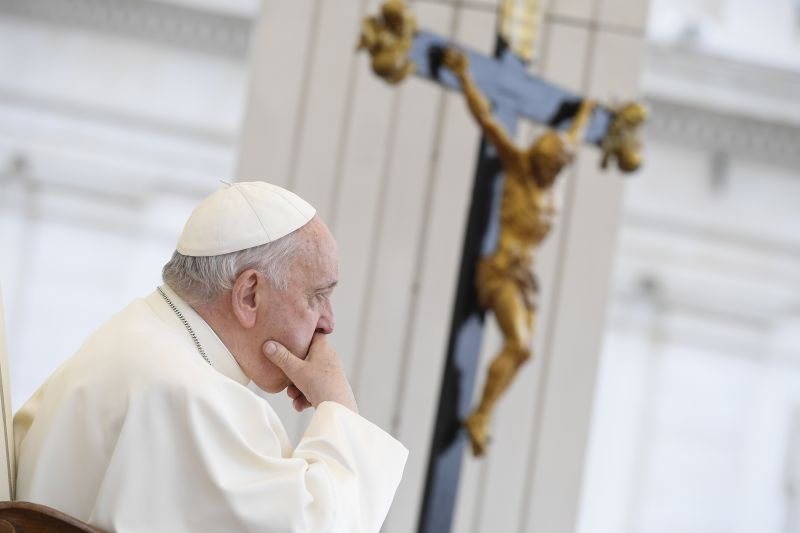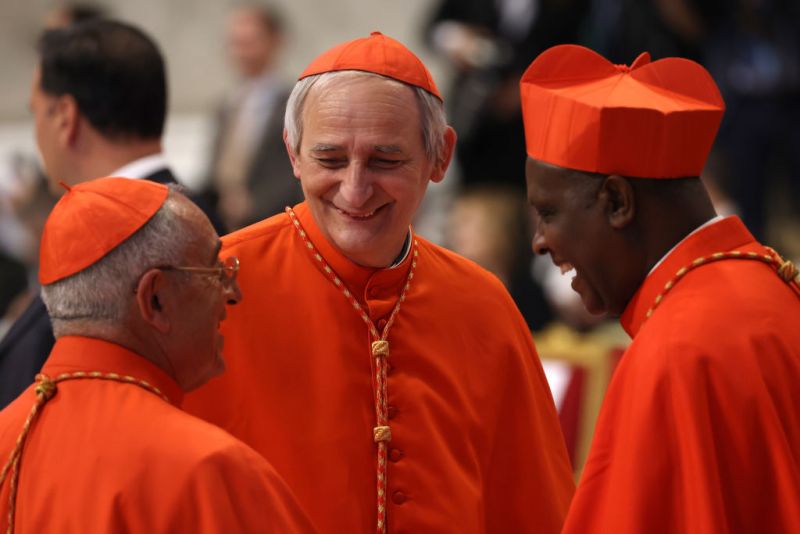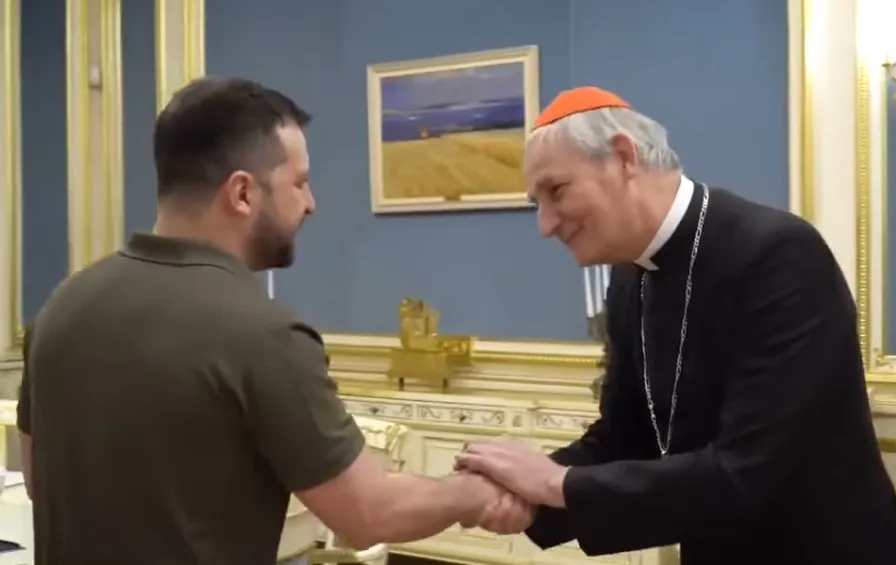 Pope Francis at his general audience in St. Peter’s Square on May 17, 2023. / Vatican Media
Pope Francis at his general audience in St. Peter’s Square on May 17, 2023. / Vatican Media
Rome Newsroom, May 21, 2023 / 08:40 am (CNA).
In a letter marking the G7 Summit in Hiroshima, Pope Francis asserted that the mere possession of nuclear weapons creates “a climate of fear and suspicion” and offers “only an illusion of peace.”
The Vatican released a letter on May 20 that the pope wrote to Bishop Alexis Mitsuru Shirahama of Hiroshima assuring his prayers as “the G7 Summit meets in Hiroshima to discuss urgent issues currently facing the global community.”
“The choice of Hiroshima as the site of this meeting is particularly significant, in light of the continuing threat of recourse to nuclear weapons,” Pope Francis said.
Hiroshima is the site of the world’s first atomic attack. On August 6, 1945, the U.S. dropped an atomic bomb on the Japanese city that resulted in the deaths of about 70,000 immediately after the blast and 140,000 people by the end of the year.
President Joe Biden, British Prime Minister Rishi Sunak, French President Emmanuel Macron, Italian Prime Minister Giorgia Meloni, German Chancellor Olaf Scholz, Canadian Prime Minister Justin Trudeau, and Japanese Prime Minister Fumio Kishida visited a memorial to the atomic bombing of Hiroshima together at the start of the summit on May 19.
“Hiroshima, as ‘a symbol of memory,’ forcefully proclaims the inadequacy of nuclear arms to respond effectively to today’s great threats to peace and to ensure national and international security,” Pope Francis said.
The pope added that “nuclear arms and other weapons of mass destruction represent a multiplier of risk that offers only an illusion of peace.”
“We need but consider the catastrophic humanitarian and environmental impact that will result from the use of nuclear weapons, as well as the waste and poor allocation of human and economic resources involved in their development. Nor should we underestimate the effects of the continuing climate of fear and suspicion generated by their mere possession, which compromises the growth of a climate of mutual trust and dialogue,” he said.
Pope Francis recalled the “overwhelming impression” left by his visit to the same Peace Memorial recently visited by G7 leaders during the pope’s 2019 visit to Japan.
“Standing there in silent prayer and thinking of the innocent victims of the nuclear attack decades ago, I wished to reiterate the firm conviction of the Holy See that ‘the use of atomic energy for purposes of war is, today more than ever, a crime not only against the dignity of human beings but against any possible future for our common home,’” he said.
On Friday, G7 leaders issued their first-ever statement on nuclear disarmament, with a special focus on Russia.
“Russia’s irresponsible nuclear rhetoric, undermining of arms control regimes, and stated intent to deploy nuclear weapons in Belarus are dangerous and unacceptable,” in the statement released by the White House. “We reiterate our position that threats by Russia of nuclear weapon use, let alone any use of nuclear weapons by Russia, in the context of its aggression against Ukraine are inadmissible.”
They also criticized efforts from North Korea and Iran to develop nuclear weapons and warned that China’s nuclear arsenal expansion poses a threat to regional and global stability.
Russia was formerly part of the G7 Group — then known as the G8. Its membership was suspended over its military annexation of Crimea from Ukraine in 2014.
In his letter, Pope Francis underlined that “global security needs to be integral, capable of embracing issues including access to food and water, respect for the environment, health care, energy sources and the equitable distribution of the world’s goods.”
“Indeed, it has become increasingly evident that in the multipolar world of the twenty-first century, the pursuit of peace is closely related to the need for security and reflection on the most efficient means for guaranteeing it,” he said.
[…]





